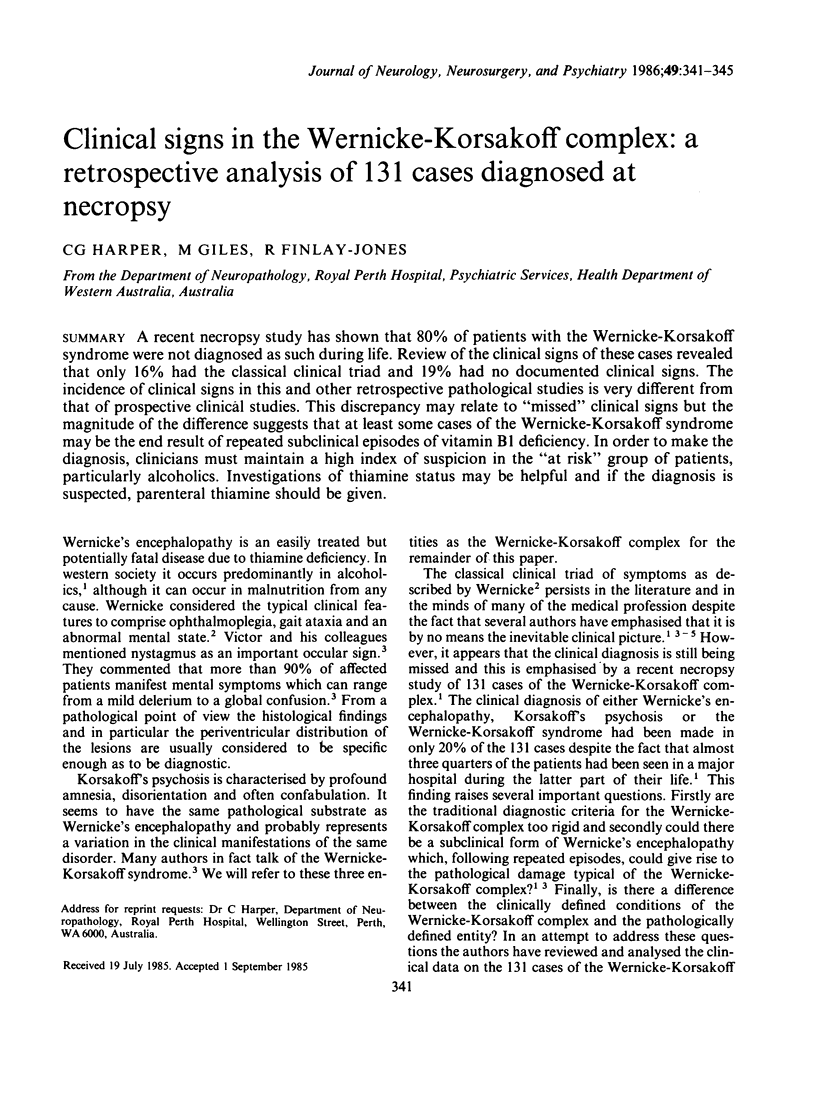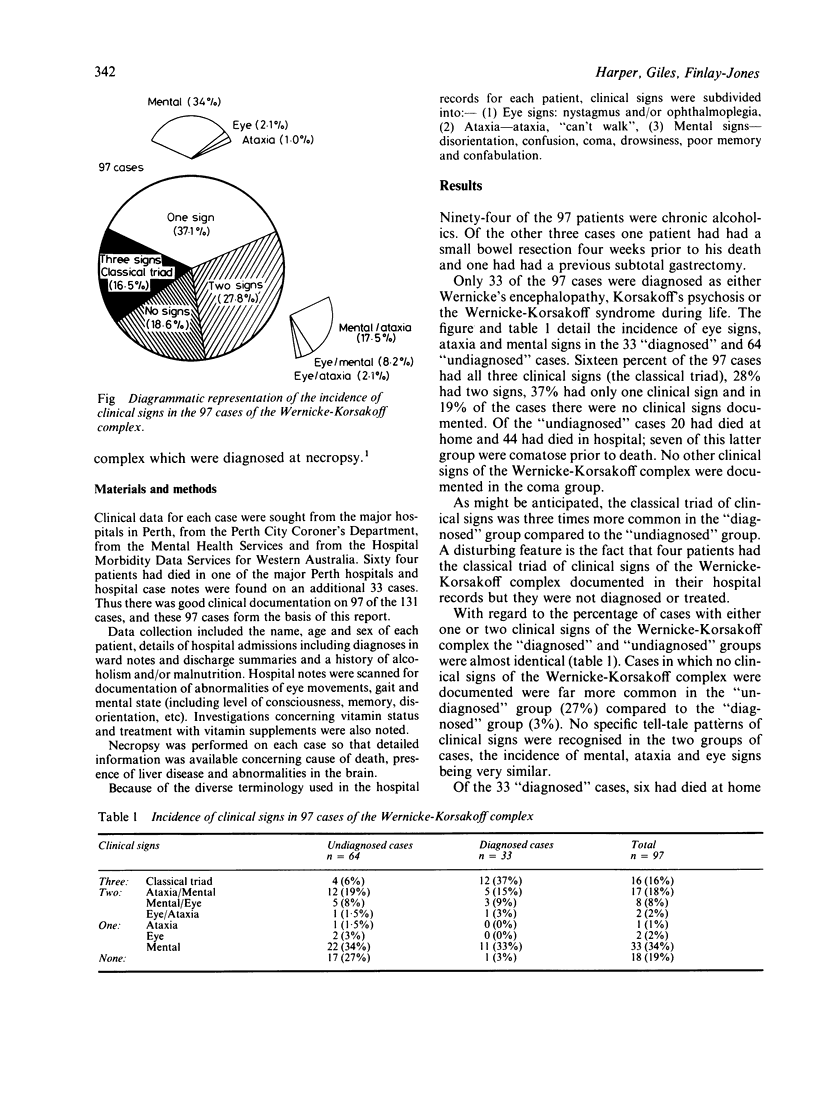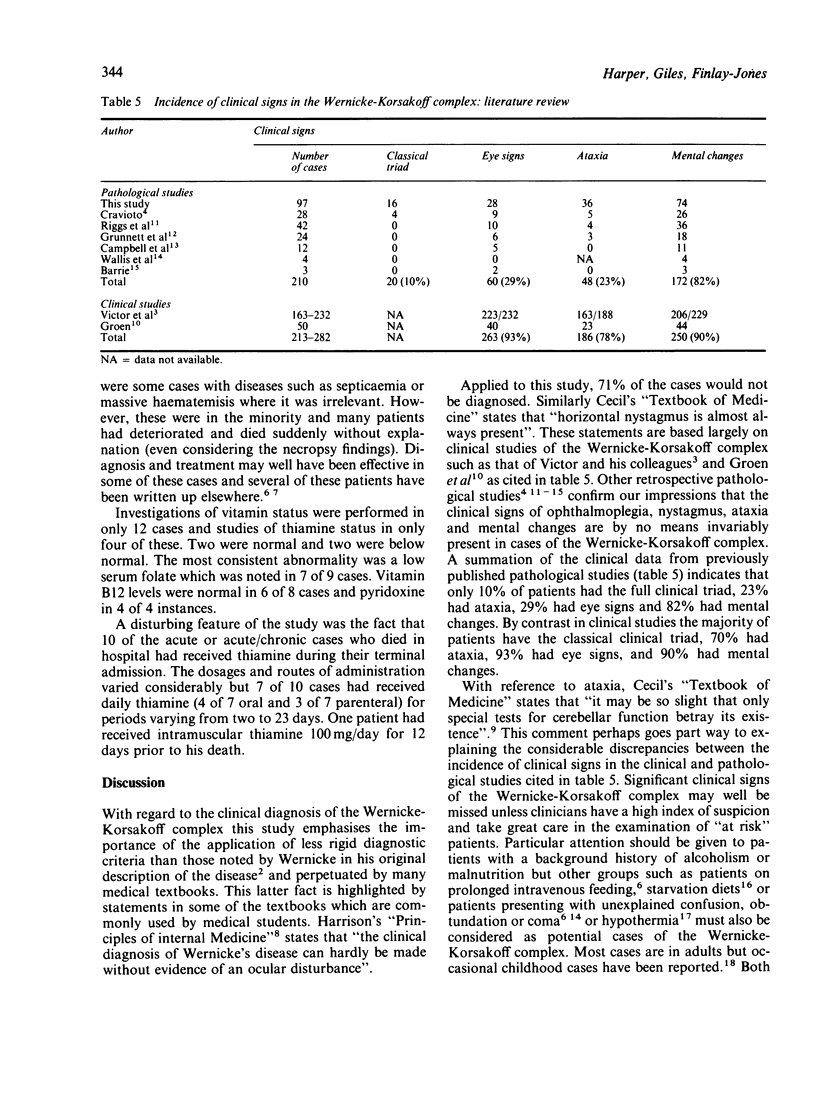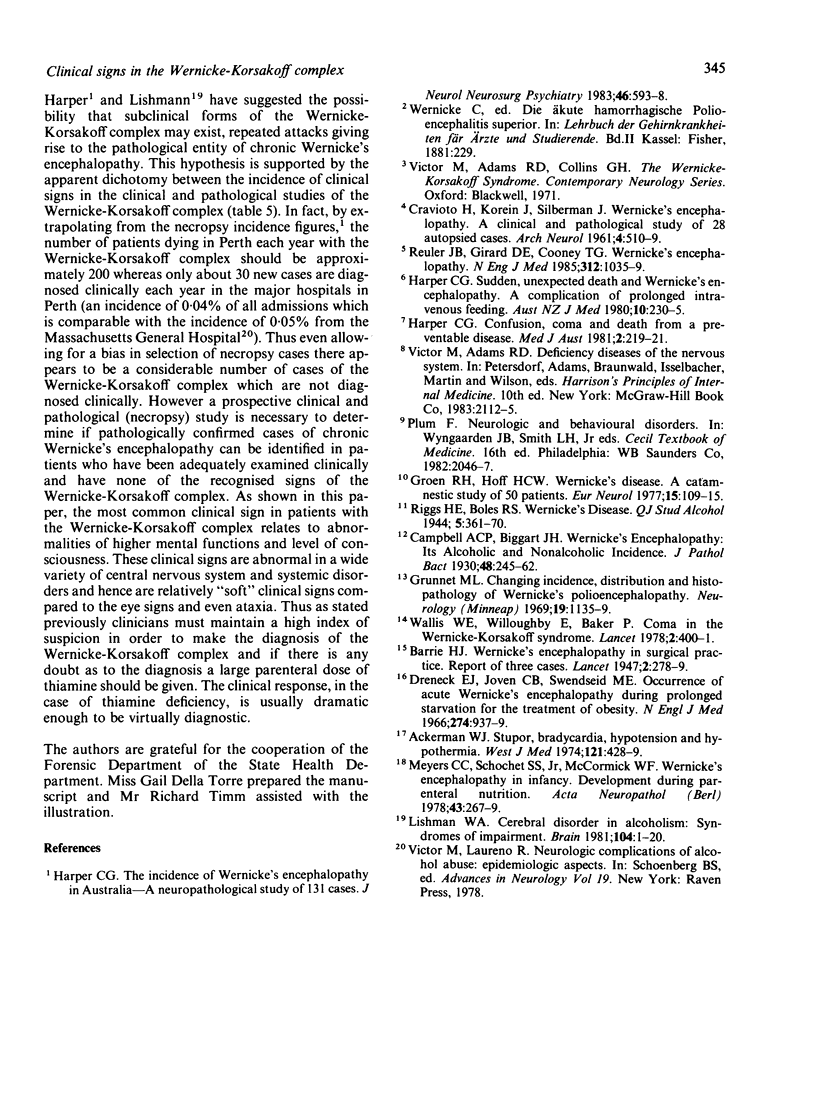Abstract
A recent necropsy study has shown that 80% of patients with the Wernicke-Korsakoff syndrome were not diagnosed as such during life. Review of the clinical signs of these cases revealed that only 16% had the classical clinical triad and 19% had no documented clinical signs. The incidence of clinical signs in this and other retrospective pathological studies is very different from that of prospective clinical studies. This discrepancy may relate to "missed" clinical signs but the magnitude of the difference suggests that at least some cases of the Wernicke-Korsakoff syndrome may be the end result of repeated subclinical episodes of vitamin B1 deficiency. In order to make the diagnosis, clinicians must maintain a high index of suspicion in the "at risk" group of patients, particularly alcoholics. Investigations of thiamine status may be helpful and if the diagnosis is suspected, parenteral thiamine should be given.
Full text
PDF




Selected References
These references are in PubMed. This may not be the complete list of references from this article.
- Ackerman W. J. Stupor, bradycardia, hypotension and hypothermia. A presentation of Wernicke's encephalopathy with rapid response to thiamine. West J Med. 1974 Nov;121(5):428–429. [PMC free article] [PubMed] [Google Scholar]
- CRAVIOTO H., KOREIN J., SILBERMAN J. Wernicke's encephalopathy. A clinical and pathological study of 28 autopsied cases. Arch Neurol. 1961 May;4:510–519. doi: 10.1001/archneur.1961.00450110040005. [DOI] [PubMed] [Google Scholar]
- Drenick E. J., Joven C. B., Swendseid M. E. Occurrence of acute Wernicke's encephalopathy during prolonged starvation for the treatment of obesity. N Engl J Med. 1966 Apr 28;274(17):937–939. doi: 10.1056/NEJM196604282741705. [DOI] [PubMed] [Google Scholar]
- Groen R. H., Hoff H. C. Wernicke's disease. A catamnestic study of 50 patients. Eur Neurol. 1977;15(2):109–115. doi: 10.1159/000114797. [DOI] [PubMed] [Google Scholar]
- Grunnet M. L. Changing incidence, distribution and histopathology of Wernicke's polioencephalopathy. Neurology. 1969 Nov;19(11):1135–1139. doi: 10.1212/wnl.19.11.1135. [DOI] [PubMed] [Google Scholar]
- Harper C. G. Confusion, coma, and death from a preventable disease. Med J Aust. 1981 Sep 5;2(5):219–221. doi: 10.5694/j.1326-5377.1981.tb100928.x. [DOI] [PubMed] [Google Scholar]
- Harper C. G. Sudden, unexpected death and Wernicke's encephalopathy: a complication of prolonged intravenous feeding. Aust N Z J Med. 1980 Apr;10(2):230–235. doi: 10.1111/j.1445-5994.1980.tb03720.x. [DOI] [PubMed] [Google Scholar]
- Lishman W. A. Cerebral disorder in alcoholism: syndromes of impairment. Brain. 1981 Mar;104(Pt 1):1–20. doi: 10.1093/brain/104.1.1. [DOI] [PubMed] [Google Scholar]
- Meyers C. C., Schochet S. S., Jr, McCormick W. F. Wernicke's encephalopathy in infancy. Development during parenteral nutrition. Acta Neuropathol. 1978 Sep 15;43(3):267–269. doi: 10.1007/BF00691590. [DOI] [PubMed] [Google Scholar]
- Reuler J. B., Girard D. E., Cooney T. G. Current concepts. Wernicke's encephalopathy. N Engl J Med. 1985 Apr 18;312(16):1035–1039. doi: 10.1056/NEJM198504183121606. [DOI] [PubMed] [Google Scholar]
- Wallis W. E., Willoughby E., Baker P. Coma in the Wernicke-Korsakoff syndrome. Lancet. 1978 Aug 19;2(8086):400–401. doi: 10.1016/s0140-6736(78)91867-6. [DOI] [PubMed] [Google Scholar]


